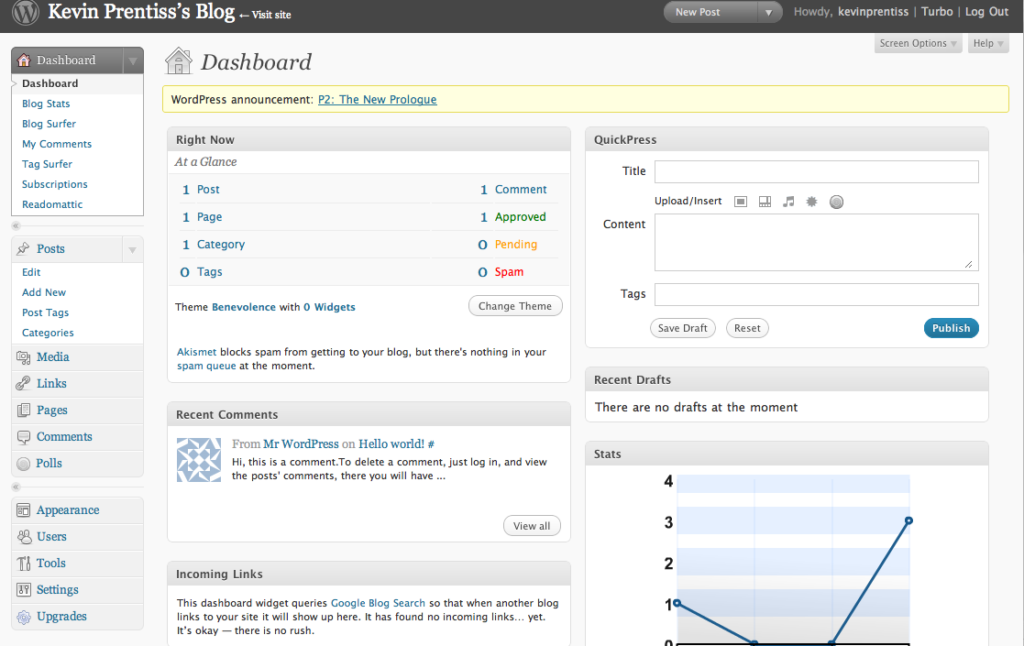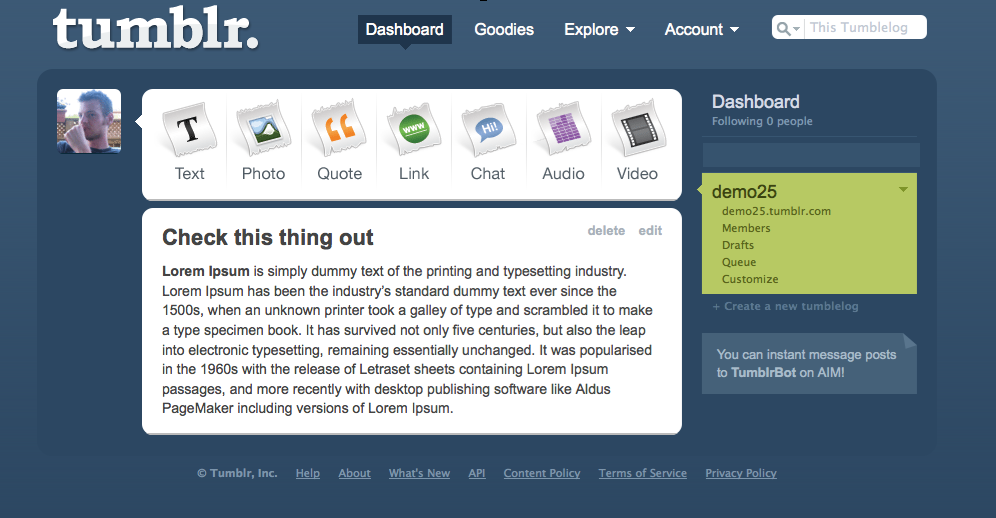The goal of our project is to build a tool that all schools can use to create learning networks for all students.
We’re working with schools of all shapes and sizes; all across the spectrum of technological savviness.
The system connects students using tags, or keywords. Tags which will eventually be created organically from web 2.0 tools that the students attach to their profile.
Now that we’re getting into attaching blogs, Twitter, delicious, etc. to the student profile, the simple question comes up: what blogging platform should we recommend to the schools that don’t currently have one?
There are two main questions for me at this stage. The first is philosophical, the second is pragmatic:
1) Should colleges host their students’ blogs?
2) Regardless of who hosts it, what should the criteria be for the blog recommendation?
The questions discussed:
Should colleges host their students’ blogs?
There seems to be a growing trend for colleges to use Word Press, specifically Word Press Multi-User deployments. There’s a great community forming, and they are doing an impressive job of organizing around the Barcamp / Wordcamp model.
I love this direction and I applaud all of the schools that are exploring, especially those using the blogs as universal e-portfolios. However, WordPress is not the only content management system that can be used to successfully create and manage websites. For alternatives, you might want to check out the best Drupal hosting for scalable hosting and 24-hour monitoring for Drupal websites.
These schools show innovation is possible. They show the way.
But . . . is this just like email? Once the email wasn’t just a school thing, it became an identifier, like a phone number, that stayed with the individual.
It’s fine to have your school or company give you an email to use professionally, but is that the model schools want to pursue with blogs? Should a “blog as e-portfolio” only be “professional” and attached to college? Shouldn’t blogs from their 6-12 years in school (where they exist) be passed through to college? Shouldn’t the blog continue with the graduate to help them maintain all of that 21st Century learning networking that we taught them?
What happens when a student transfers schools and all of their work is in the Word Press Multi-user install of their old school? (Can this be switched easily? I’ve never migrated a WP blog.)
Getting into these details is new for me, so I’m hoping some of the folks that have been thinking about this issue longer can shed some light on the process and their decision.
What I’ve read is something along the lines of “we really don’t know if we’re signing on to host a student’s blog forever, but it’s not as expensive as it used to be, and we’ll figure that out later.” I’m fine with that answer, I would just like to be clear on the issues.
What are the criteria for a blog recommendation?
I’m down to either Word Press or Tumblr. If there is another platform that we should consider, do tell. To make the conversation more specific
Simplicity vs. Flexibility
I’m a huge fan of Simplicity.
Here’s the main screen for Word Press:

Here the main screen for Tumblr:

Which interface is going to get people blogging faster? Which one is clear and makes you want to click?
Comment system
I’m currently obsessed with using Disqus because we can aggregate the comments of a student in their e-portfolio. Using the Disqus API, we can import “likes” and rankings of comments.
Disqus will work with both. Bonus points to the platform that has the quickest integration.
Open Source vs. Private
I’m not religious about this issue, but I am a bit of an anarchist/idealist and open-source fits nicely into this predilection.
If, however, a private and closed, even slightly evil, company provides a better experience of simplicity and quality (see: Apple) I will bow down.
IT involvement
It’s nice if any excited individual at the university can experiment. Not using IT seems to rule out Word Press Multi-User installs.
Also, it’s important to note, one of the tenets of our projects is allowing student and faculty member choice. They should be allowed and encouraged to use whatever works for them. (We’re betting that the majority of their choices will produce an RSS feed we can work with, someday Facebook might even share outside of the API.)
This is just me trying to parse the various issues in public for when I’m asked my opinion.
